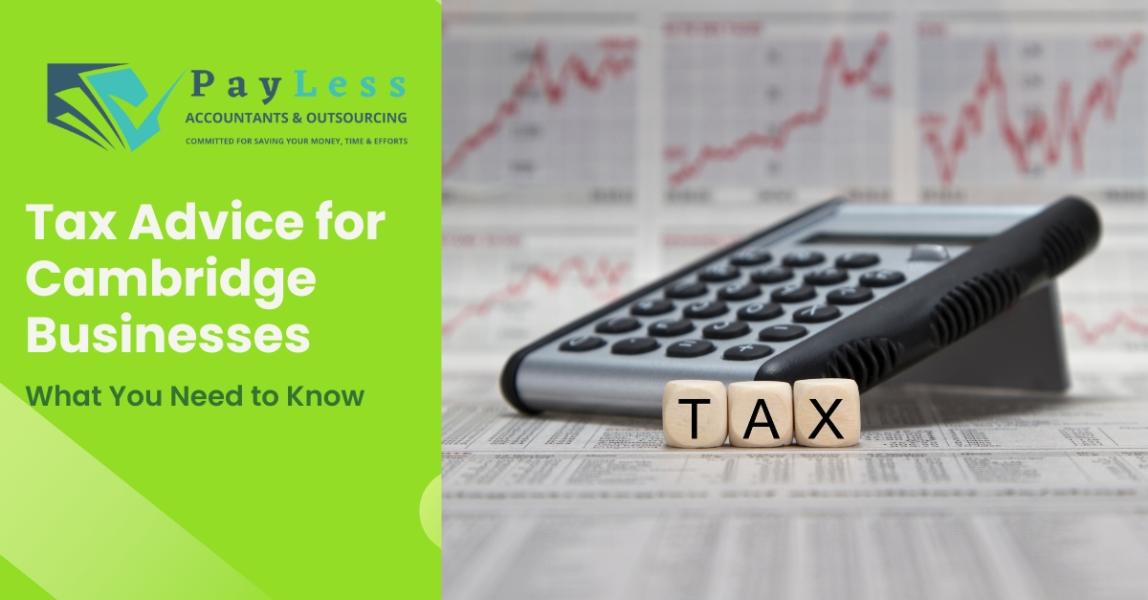Tax Advice for Cambridge Businesses: What You Need to Know
Whether you’re a startup, SME, or established company, understanding the tax landscape can help you reduce liabilities, avoid penalties, and plan for sustainable growth. Here’s an essential guide to tax advice tailored for businesses in Cambridge.
1. Understand Your Tax Obligations
Every business in the UK must comply with tax laws set by HM Revenue & Customs (HMRC). Depending on your business structure, your tax obligations may vary.
-
Sole Traders – Pay Income Tax and National Insurance on profits.
-
Limited Companies – Pay Corporation Tax on profits and handle PAYE for employees.
-
Partnerships – Each partner pays tax individually based on their share of profits.
Having clarity about these obligations helps you avoid costly mistakes and penalties.
2. Keep Accurate Financial Records
Good bookkeeping is the backbone of efficient tax management.
Cambridge businesses should maintain accurate, up-to-date financial records including:
-
Income and expenses
-
Payroll records
-
Invoices and receipts
-
VAT records (if applicable)
Using cloud-based accounting software can make this process simpler, ensuring compliance and easy access to financial data during audits or tax return preparation.
3. Take Advantage of Tax Reliefs and Allowances
The UK government offers various tax reliefs and allowances that Cambridge businesses can benefit from. Some key opportunities include:
-
R&D Tax Credits – Ideal for tech and research-based companies.
-
Annual Investment Allowance (AIA) – For equipment and machinery purchases.
-
Employment Allowance – Helps reduce National Insurance contributions.
-
Small Business Rates Relief – Reduces business rates for eligible SMEs.
Knowing which reliefs apply to your business can significantly lower your tax burden.
4. Plan for VAT Compliance
If your business turnover exceeds £90,000 (current threshold), you must register for VAT.
Understanding VAT schemes, filing returns on time, and keeping correct documentation is essential to avoid HMRC fines.
Many Cambridge businesses opt for professional accounting support to stay VAT compliant and make use of schemes like the Flat Rate Scheme to simplify reporting.
5. Work with a Professional Accountant
Taxes can be complex, especially as your business grows.
Partnering with an experienced accountant, like Payless Accountants, can help you:
-
Stay compliant with HMRC regulations
-
Identify tax-saving opportunities
-
Prepare accurate and timely tax returns
-
Plan for future financial growth
Our team specialises in supporting Cambridge businesses, providing tailored advice that keeps you ahead of deadlines and informed of changing tax laws.
6. Stay Updated with Changing Tax Laws
Tax regulations are constantly evolving.
For instance, recent changes to Making Tax Digital (MTD) require many businesses to submit digital tax returns. Staying updated ensures your business remains compliant and avoids penalties.
Subscribing to HMRC updates or working with a trusted accounting partner ensures you never miss critical changes.
Conclusion
Managing taxes efficiently is crucial for the growth and sustainability of your Cambridge business.
By understanding your obligations, keeping accurate records, leveraging reliefs, and working with experts like Payless Accountants, you can stay compliant while maximising your financial health.
Let us handle the complexities of tax so you can focus on growing your business with confidence.
Disclaimer
This article is intended for informational purposes only and should not be considered as professional tax or financial advice. For guidance specific to your business situation, please consult with a qualified accountant or tax advisor.

